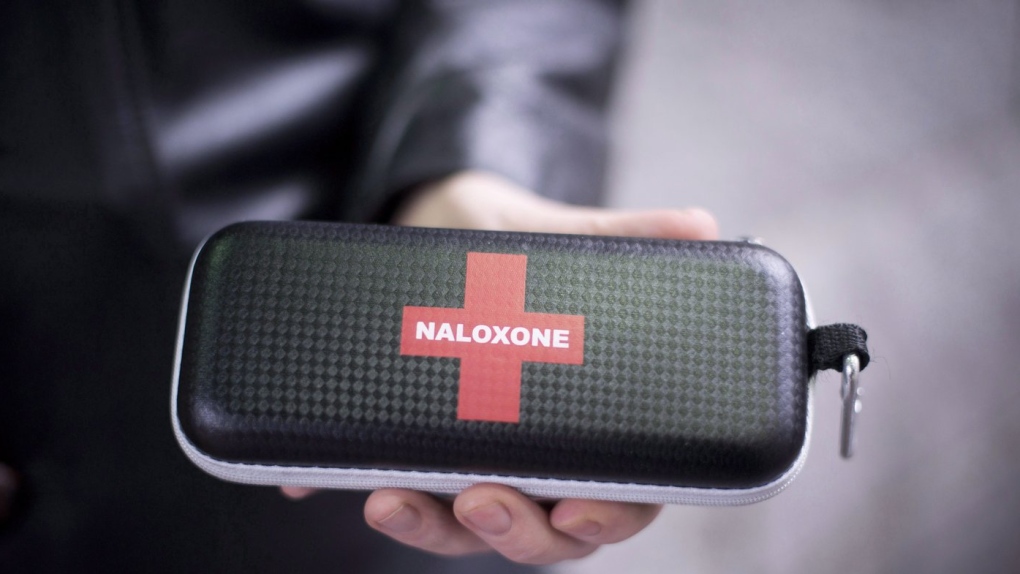The Ontario government has announced that it will be closing sites that provide supervised consumption services (SCS) near schools and daycares, and will be prohibiting any new ones from being built near them.
Ontario Premier Doug Ford’s office confirmed the move to CP24 on Tuesday morning. Additional details were released this afternoon.
The changes mean that any SCS site within 200 metres of a school or child care centre will be banned from operating.
As a result, nine provincially-funded sites and one self-funded location in in Ottawa, Guelph, Hamilton, Thunder Bay, Kitchener, and Toronto, will close by no later than March 31, 2025. Five of those sites are located in Toronto, the province has confirmed.
In an Aug. 20 news release, the province annouced that it would also implementing new “protections to better protect community safety in the vicinity of remaining sites,” which include new requirements for safety and security plans and new policies to “discourage loitering and promote conflict de-escalation and community engagement.”
The Ontario government said it would also be introducing new legislation this fall, that if passed, would prohibit municialities or any organization from “standing up new consumpton sites or participating in safer supply programs.”
This legislation also calls for the prohibition of municipalities from applying for drug decriminalization examptions from the federal government.
Instead of funding SCSs, the provincial government said it would be $378 million to open 19 new Homelessness and Addiction Recovery Treatment (HART) Hubs in partnership with the Ministry of Health, the Ministry of Municipal Affairs and Housing, the Ministry of Children, Community and Social Services, and the Ministry of Labour, Immigration, Training and Skills Development.
The province says these hubs, which will not be allowed to deliver needle exchange programs, but may be permitted to offer needle return or collection services, would be similar to existing hub models “that have successfully provided people with care” and would “reflect regional priorities by connecting people with complex needs to comprehensive treatment and preventative services.” Some of the services offered at these hubs could include primary care, mental health services. addiction care and support, social services and employment support, shelter and transition beds, supportive housing, and other supplies and services like naloxone, onsite showers, and food, the province said.
Ontario said the plan is for these hubs to add 375 “highly supportive” housing units along with addiction recovery and treatment beds.
The nine provincially-funded supervised consumption services sites slated for closure are being encouraged to submit proposals to transition to HART Hubs and may be eligible for up to four times more funding than they previously received, the province said.
“Communities, parents and families across Ontario have made it clear that the presence of consumption sites near schools and daycares is leading to serious safety problems,” Sylvia Jones, Deputy Premier and Minister of Health, said in a release.
“We need to do more to protect public safety, especially for young school children, while helping people get the treatment they need, which is why we’re taking the next step to expand access to a broad range of treatment and recovery services, while keeping kids and communities safe.”
 A Naloxone anti-overdose kit. (Source: THE CANADIAN PRESS/Jonathan Hayward)
A Naloxone anti-overdose kit. (Source: THE CANADIAN PRESS/Jonathan Hayward)
Harm reduction advocates, meanwhile, have championed supervised consumption sites as a way to help mitigate opioid-related deaths, which have surged in recent years as drug supplies have become increasingly toxic and unpredictable.
Supervised consumption sites allow people to bring their own unregulated drugs for use within a clinical space under the supervision of trained healthcare professionals who can provide treatment immediately if an overdosei occurs. They also connect drug users with health and social services.
The first SCS site opened in Toronto in 2017. Currently, 10 sites in Toronto provide these services, six of which are provincially designated Consumption and Treatment Service sites that are funded by the province.
Scrutiny of these sites intensified following the shooting death of Caroline Huebner-Makurat, a 44-year-old mother who was struck by a stray bullet near a supervised consumption site near Queen Street and Carlaw Avenue in Leslieville last summer.
Police have said there was an altercation between three males which escalated into violence.
Two suspects have since been charged in the shooting, while police believe a third fled the country. A fourth person – an employee of the consumption site – was also charged with accessory to an indictable offence after the fact and one count of obstructing justice in connection with the shooting. However police have not said exactly how she is connected to the shooting.
Some area residents voiced concern about visible drug use, aggressive behaviour, and drug paraphernalia around the site.
Advocates for the sites, however, say that housing and mental health crises have overwhelmed available services.
Closures could lead to rising death toll: advocate
Diana Chan McNally, a community and crisis worker in downtown Toronto, called today’s news “devastating” and said it will result in more harm.
“If you close down a number of these sites, we’re going to see a death toll rising out on our streets,” she said.
“And for people who are concerned about people using drugs, it will be much more visible out everywhere.”
Chan McNally said dealing with the additional health impacts of closing the sites will also be costlier than keeping them open.
“From a policy perspective, it’s also going to be costly because if we don’t have these services and people are overdosing on the street, overdosing in public, you’re going to have to send EMS. You’re going to have to take people to ERs, and you’re going to see an extreme expense attached to that as well,” she said.
Asked about the development at an unrelated news conference Tuesday, Toronto Police Chief Myron Demkiw said it would be “premature” to comment before he’s seen the details.
Coun. Chris Moise, who chairs the Toronto Board of Health, said he will be issuing a response to the announcement later in the day.